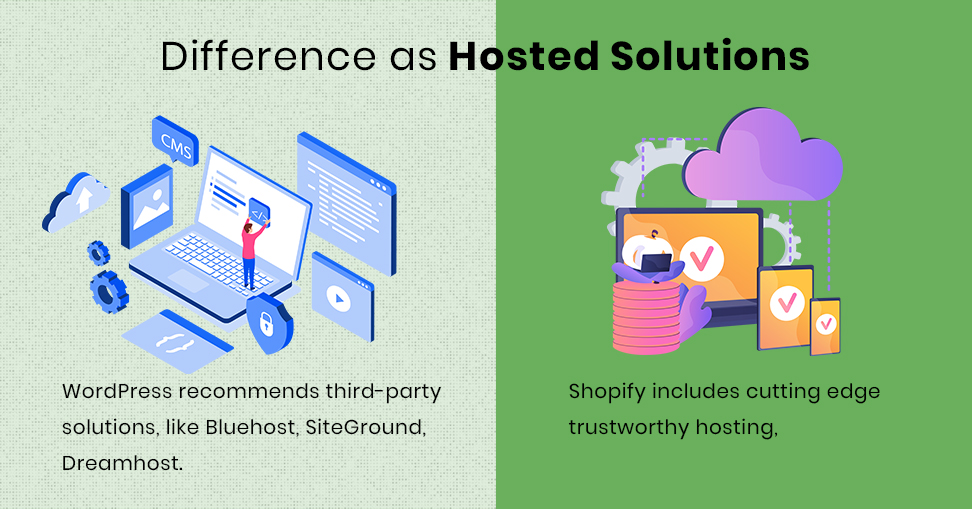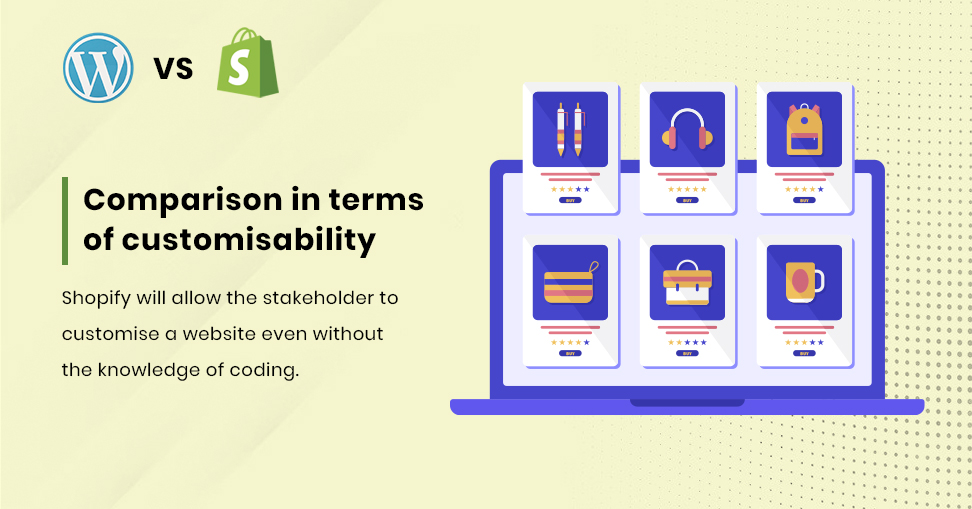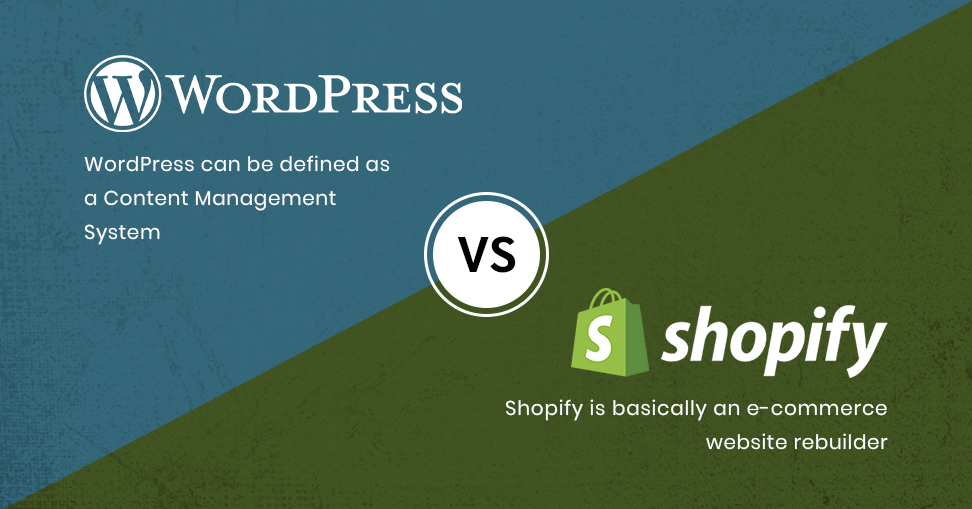A Brief Analytical Comparison Between Shopify and WordPress
The technology behind web development is changing by leaps and bounds.Older technologies are making way for the newer ones, adding more functionality and lucidity to the websites that are being developed. Now the fact is that with the turn of the year 2023, the tools that have made the real difference is Shopify. It provides stakeholders an out of the box solution, allowing them to run a hosted online store efficiently with a built-in fraud protection as well as cutting edge security features.
On this page, let us discuss the compassion between Shopify and the good old WordPress.
The Structural Difference
The key difference between WordPress and Shopify is that WordPress can be defined as a Content Management System, whereas Shopify is basically an e-commerce website rebuilder. Shopify development services are mainly targeted for business owners and have several in-built ecommerce features. WordPress on the other hand is designed for freelancers and bloggers, with its e-commerce components featuring as plugins.
Difference as Hosted Solutions
Shopify includes cutting edge trustworthy hosting, while WordPress recommends third-party solutions, like Bluehost, SiteGround, Dreamhost. When hosting is included, the setup becomes easier and more user friendly. Hence, there is no requirement of signing up for a separate hosting service, since Shopify already comes with a hosting service.

Difference in terms of Subscription
While WordPress comes free of cost, setting up a WordPress website comes with a charge. Shopify, on the other hand, simplifies this entire process of payment with the help of certain plans. While dealing with WordPress, you will need to pay for hosting, a domain name, a particular theme, a web developer and for the plugins needed to create an ecommerce store.
Comparison in terms of customisability
When it comes to comparing Shopify and WordPress, Shopify will allow the stakeholder to customise a website even without the knowledge of coding. Thus,even without knowing coding, it is possible to update the typography, colours, as well as layout of the pages using Shopify. However, when the stakeholder has the knowledge of coding, it becomes easier for the individual to have access and deal with CSS and HTML files with relative ease.
Built in SEO Features
Shopify comes with built-in features of SEO to help the ranking of the ecommerce site on search engine result pages. As in WordPress, Shopify also features a CMS (Content Management System), which helps the businesses to create content and increase the number of pages on the website. However, Shopify comes with some added features that allow you to include meta titles, descriptions and more on the web pages.
Shopify comes with more than 100 payment gateways
Shopify comes with more than 100 payment gateway options, which include Stripe, AmazoPay, Paypal and many more.

Final words:
In the nutshell, they like Shopify because:
- Shopify is a client-facing app
- It provides 24×7 support
- Free Trial
- Need of very little technical knowledge
- Build in SEO features
- Unlimited Storage
- First-Party POS System
- Automatic site protection feature and many more.
It is no wonder that with so many extra privileges the businesses would prefer Shopify over WordPress.
